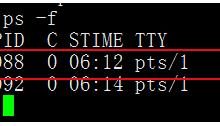1、expect-正则表达
(1)expect 实现无交互登录
expect是一个免费的编程工具语言,用来实现自动和交互式任务进行通信,而无需人的干预。如:ssh登录,ftp登录等写在一个脚本上,使之自动化完成。
(2)安装expect
[root@test ~]# yum -y install expect
(3)使用方法
A、定义脚本执行的shell
[root@test ~]# find / -name expect /usr/bin/expect
#!/usr/bin/expect
定义的是 expect 可执行文件的链接路径.
B、set timeout 30
设置超时时间,单位是秒,如果设为timeout -1意为永不超时,默认timeout 为10s
C、spawn
spawn 是进入expect 环境后才能执行的内部命令,如果没有装expect或直接在默认的SHELL下执行是找不到spawn命令的。不能直接在默认的shell环境中进行执行主要功能,它主要的功能是给ssh运行进程加个壳,用来传递交互指令。
D、expect
expect内部命令,主要用来判断输出结果是否包含某项字符串,没有则立即返回,否则就等待一段时间后返回,等待时间通过timeout进行设置。
E、send
执行交互动作,将交互要执行的动作进行输入给交互指令。
命令字符串结尾要加上\”\\r\”,如果出现异常等待的状态可以进行核查。
F、exp_continue
继续执行接下来的交互操作
G、interact
执行完后保持交互状态,把控制权交给控制台;如果不加这一项,交互完成会自动退出。
H、$argv
expect脚本可以接受从bash传递过来的参数,可以使用 [lindex $argv n]获得,n 从 0 开始,分别表示第一个,第二个,第三个……参数。
(4)免密码通过 SSH 登录服务器(非秘钥方式)
[root@test shell]# vi ssh.sh \"password\" { send \"$passwd\\r\" }}#!/usr/bin/expectset ip \"192.168.0.20\"set name \"root\"set passwd \"123456\"set timeout 25spawn ssh $name@$ipexpect {\"yes/no\" { send \"yes\\r\";exp_continue }\"password\" { send \"$passwd\\r\" }}expect \"#\" #判断上次输出结果里是否包含“password:”的字符串,如果有则立即返回,向下执行;否则就一直等待,直到超时时间到send \"touch /root/test.txt\\r\"send \"ls /root > /root/test.txt\\r\"send \"exit\\r\"expect eof #执行完成上述命令后,退出 Expect,把控制权交给控制台,变回手工操作[root@test shell]# expect ssh.sh spawn ssh [email protected]@192.168.0.20\'s password: Last login: Fri Nov 27 00:18:47 2020 from 192.168.0.10[root@test ~]# touch /root/test.txt[root@test ~]# ls /root > /root/test.txt[root@test ~]# exit登出Connection to 192.168.0.20 closed.[root@test shell]#
注:expect -f ssh.sh 会显示脚本执行不成功的报错信息。
(5)批量ssh登录服务器进行管理
[root@test shell]# cat ssh.exp #!/usr/bin/expectset ipaddr [lindex $argv 0]set passwd [lindex $argv 1]set timeout 30spawn ssh root@$ipaddrexpect {\"yes/no\" { send \"yes\\r\";exp_continue }\"password\" { send \"$passwd\\r\" }}expect \"#\"send \"cd /root\\r\"send \"rm -rf test.txt\\r\"send \"exit\\r\"expect eof[root@test shell]# Shell脚本传递ip及密码等参数信息:[root@test shell]# cat login.sh #!/bin/bashechofor ip in `awk \'{print $1}\' /root/shell/ip_list.txt`dopass=`grep $ip /root/shell/ip_list.txt|awk \'{print $2}\'`expect /root//shell/ssh.exp $ip $passdone[root@test shell]# ip_list.txt文件[root@test shell]# cat ip_list.txt 192.168.0.20 123456[root@test shell]# 执行脚本[root@test shell]# sh login.sh spawn ssh [email protected]@192.168.0.20\'s password: Last login: Fri Nov 27 00:32:36 2020 from 192.168.0.106[root@test ~]# cd /root[root@test ~]# rm -rf test.txt[root@test ~]# exit登出Connection to 192.168.0.20 closed.[root@test shell]#
个人公众号:

 爱站程序员基地
爱站程序员基地


